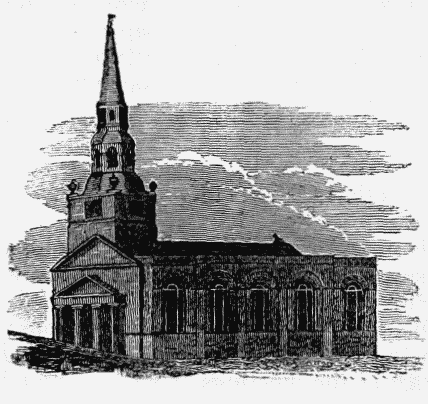Historical Account of Newcastle-Upon-Tyne Including the Borough of Gateshead. Originally published by Mackenzie and Dent, Newcastle-upon-Tyne, 1827.
This free content was digitised by double rekeying. Public Domain.
Eneas Mackenzie, 'Literary Institutions : News Rooms & Debating Societies', in Historical Account of Newcastle-Upon-Tyne Including the Borough of Gateshead(Newcastle-upon-Tyne, 1827), British History Online https://prod.british-history.ac.uk/no-series/newcastle-historical-account/pp499-500 [accessed 26 April 2025].
Eneas Mackenzie, 'Literary Institutions : News Rooms & Debating Societies', in Historical Account of Newcastle-Upon-Tyne Including the Borough of Gateshead(Newcastle-upon-Tyne, 1827), British History Online, accessed April 26, 2025, https://prod.british-history.ac.uk/no-series/newcastle-historical-account/pp499-500.
Eneas Mackenzie. "Literary Institutions : News Rooms & Debating Societies". Historical Account of Newcastle-Upon-Tyne Including the Borough of Gateshead. (Newcastle-upon-Tyne, 1827), British History Online. Web. 26 April 2025. https://prod.british-history.ac.uk/no-series/newcastle-historical-account/pp499-500.
In this section
NEWS-ROOMS.
The Assembly Subscription Rooms.—The members of this establishment consist of the proprietors of the Assembly Rooms, and of other gentlemen who are elected by ballot. Each person, on admission, pays £5, 5s. and an annual subscription of £2, 2s. There are at present about 110 subscribers. Attached to the news-rooms is a library and card-room. Each gentleman, on going into the latter, pays 6d. to the keeper of the rooms. The former is well selected, and chiefly consists of periodical publications, travels, works on Geography, History, and Politics; with maps, charts, &c.
The Exchange Subscription Rooms.—The subscribers to this establishment formerly met in Bella's Coffee-house on the Sandhill, and afterwards removed for a short time to the Merchants' Court. Having obtained from the corporation a lease of the south side of the Exchange, subject to the payment of a small annual ground-rent, suitable apartments were formed and furnished at the expense of the institution. These rooms were first opened on January 1, 1808. Each subscriber pays five guineas on being elected, and afterwards two guineas annually. There are about 320 payable subscribers on the books. All the London daily newspapers, and the best London and provincial weekly papers, with the most noted foreign commercial journals, are taken in.
In consequence of the change in the time of the arrival of the mails in Newcastle, which increased the inconvenience of consulting the newspapers on their arrival in inns and public houses, a meeting was held at Mr. Dixon's, the White Hart Inn, on September 8, 1819, when it was resolved to establish a Central News-room, on a liberal and economical plan. It was immediately afterwards opened in a room above the shop of Mr. Lambert, grocer, Mosley Street. There are about 90 subscribers, each of whom pays £1 annually; and a great variety of papers are procured, as they are nearly all sold after a stated time. There is also a Subscription News-room on the Quayside, near to the Custom-house; but there are only about 20 subscribers belonging to it.
DEBATING SOCIETIES.
In a country like England, where public speaking is so necessary, and knowledge so highly advanced, it is surprising that societies for viva voce discussion are not more numerous. The most brilliant orators in modern times had their powers first called into action by direct intellectual collision in such institutions; for immediate applause is well adapted for producing the finest literary efforts. A Philosophical Society existed in Newcastle in 1775, (fn. 1) at the meetings of which a member in his turn first read a paper or lecture, after which it became the subject of general debate. Another "Society for Mental Improvement was instituted in Newcastle in October, 1796." In this society also the debates were preceded by the reading of a short essay. A "New Philosophical Institution, for the discussion of subjects relative to literature and science, was formed at the Surgeons' Hall on October 30, 1816. This society commenced with great spirit, and, soon after, held their meetings in Fletcher's Long Room. Members were permitted to introduce ladies or strangers; but the Society was dissolved about the end of 1817, in consequence of the political alarms and jealousies that then prevailed. In 1820, the Eclectic Literary Society was formed, and met in Dixon's Long Room, Old Flesh Market. In 1822, this society joined the Rational Institution, when the united body assumed the designation of the Newcastle Debating Society, (fn. 2) and afterwards assembled in the Joiners' Hall, in High Friar Street, where they continued until 1825, when the want of varied talent, combined with languor in attendance, induced the members to discontinue their meetings. Between the years 1822 and 1824, another institution, called the Society for Literary Discussion, met in a school-room in St. Nicholas' Church-yard. There have also existed in this town, for short periods, private conversaziones, and societies for elocutionary practice: two or three such are at present in being.
